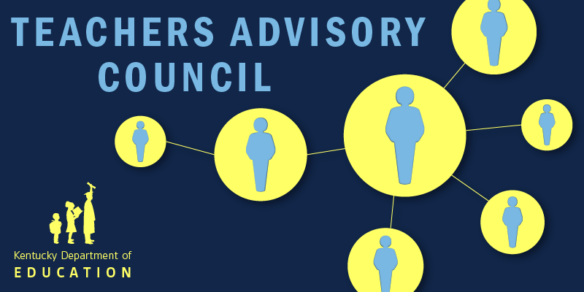 Members of the Kentucky Department of Education’s (KDE’s) Commissioner’s Teachers Advisory Council (TAC) discussed artificial intelligence (AI) and educator well-being during their meeting on March 7.
Members of the Kentucky Department of Education’s (KDE’s) Commissioner’s Teachers Advisory Council (TAC) discussed artificial intelligence (AI) and educator well-being during their meeting on March 7.
Kristal Doolin, a deeper learning educational consultant from the Southeast South-Central Educational Cooperative spoke to the council on how to use AI as an educator and within the classroom.
“Using AI as your assistant or thought partner can get you part of the way there and it can give you new ideas to brainstorm, but to make it fit your voice and your needs you are going to need to edit,” said Doolin.
Doolin said that most people are already using tools with AI in them without even knowing. Since the launch of Chat GPT, Doolin said that there has been a flood of AI technology apps and systems that have been launched.
“We don’t want AI to be just another thing that we do. We want it to infiltrate into everything that we’re doing so it’s not a separate entity,” said Doolin.
Doolin said she believes that teaching AI literacy will provide an opportunity for students to learn about the technology, how to use it properly, evaluate the systems and understand the ethical considerations when using it.
“We want our students to be more informed that AI is not all bad, but there has to be balance, you have to understand it and purposely use it for good,” said Doolin.
She showed council members examples of how they can use AI within their classrooms, such as asking the technology to take a lesson and turn it into a song for the students to remember, or reviewing papers based on a rubric and giving feedback to students on their writing.
“I think about how many options this is going to give teachers to open the door for divergent thinking in their classroom and allowing for students to go out of the box more,” said Doolin. “There are going to be so many other options for them to think about and dig into.”
Educator well-being
Annalee Jackson, a Leadership for Educational Equity (LEE) Public Policy Fellow in the KDE Office of Teaching and Learning, spoke to the council about educator well-being.
On Feb. 6, KDE released results from the 2023 Impact Kentucky Working Conditions Survey, which asks all certified school staff a variety of questions about their working conditions.
The survey is administered every two years. Certified educators working at least half-time are given the opportunity to provide input on teaching conditions that can be used to inform improvements within schools, districts and statewide.
“We know that if we want students to be well and do the best that they can, we also need our educators and our leaders to be well and do the best that they can too,” said Jackson.
In the survey, educators responded 78% favorably to questions about staff-leadership relationships, 2% higher than the previous report. The greatest increase was seen in emotional well-being and belonging, with a 7% increase.
The survey also shows that a total of 34% of educators reported a favorable response regarding the emotional well-being of their colleagues because of their work, and 55% reported a favorable response regarding their own emotional well-being.
“We know this is important nationally and important locally. I think it is helpful to be grounded in the data, but educator well-being to me is connected by their self-efficacy, their confidence levels and how they can be themselves in their space,” said Jackson.
Jackson asked council members to discuss areas in their schools that were doing well in supporting educators’ well-being and areas in which some schools may need to improve upon.
Kevin Dailey, a teacher in Boone County and the 2024 Kentucky Teacher of the Year, said the support and trust built between other educators, administration and staff is extremely important.
“My principal particularly does an incredible job of valuing the teacher’s expertise,” said Dailey. “She trusts her teachers and that trust is incredibly important for me, but it also builds our culture within our building.”
Jamaal Stiles, an educator in Washington County, said something to keep in mind when it comes to emotional well-being is knowing when an educator’s plate is full and finding ways to protect their time.
“We had that conversation at the district level, that it is difficult to keep good teachers and keep young teachers if they don’t stop giving stuff to do. That’s one of the problems,” said Stiles.
Jackson acknowledged the demanding work that educators do and the long hours that come with it. She said that finding that balance and creating resources for educators is one of her priorities.
“I hear that there’s so much that teachers need to prioritize and everything feels so important. So, I would encourage deprioritizing things and then prioritizing things which we know are more pressing,” said Jackson.
The Commissioner’s Teacher Advisory Council will meet again on June 6.




Leave A Comment